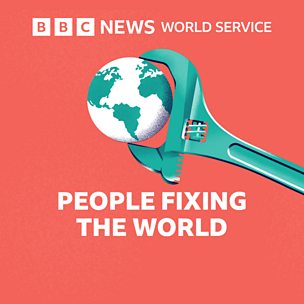People Fixing the World - Meeting Colombia’s ‘Violentologist’
Download Meeting Colombia’s ‘Violentologist’
For the past 20 years, police chiefs and policy makers around the world have been fascinated by an idea: that violence spreads through cities like a disease, with patterns of clustering and transmission, and opportunities to inoculate communities against it.
Violence-reduction programmes, influenced by epidemiology, have been implemented in Chicago, Glasgow and - most recently - London. But before these initiatives, a link between violence and disease was made by a Colombian doctor called Rodrigo Guerrero.
When Guerrero became mayor of Cali in Colombia in 1992, the city was in crisis. It was the height of a war between the Cali and Medellin drug cartels with the homicide rate reaching a shocking 120 per 100,000 people.
Guerrero’s approach was not to wage a war against the cartels, or to cave into corruption. Instead, he used his knowledge as a Harvard-trained epidemiologist to gather data about the exact causes of homicide, make hypotheses, and try interventions. “I was no longer an epidemiologist, but a violentologist,” he recalls.
In this programme Dr Guerrero gives reporter William Kremer a tour of his city and explains his approach.
Reporter: William Kremer
(Photo Caption: Dr Rodrigo Guerrero / Photo Credit: BBC)
Published on Tuesday, 10th September 2019.
Available Podcasts from People Fixing the World
Subscribe to People Fixing the World
We are not the BBC, we only list available podcasts. To find out more about the programme including episodes available on BBC iPlayer, go to the People Fixing the World webpage.
